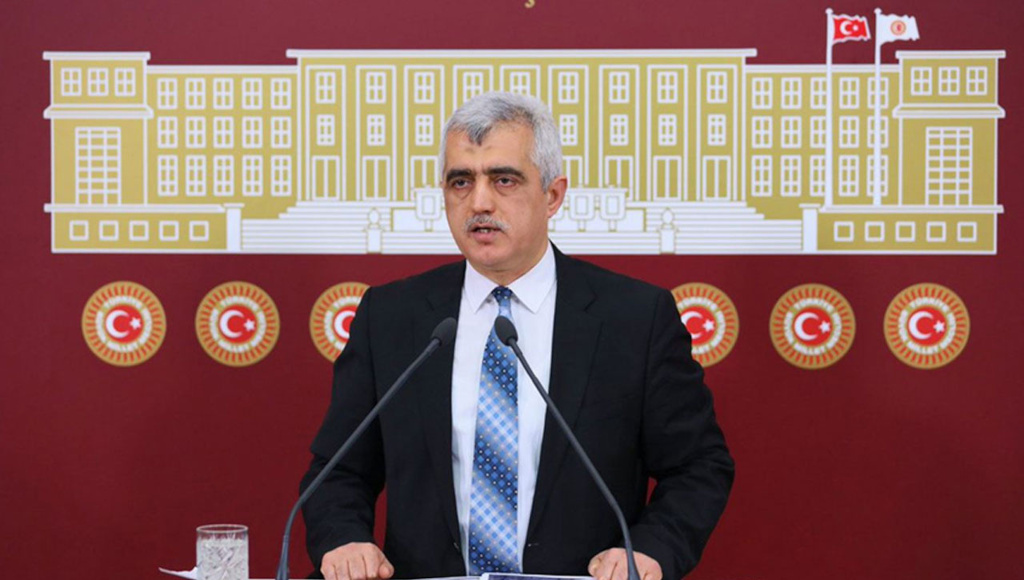Ömer Faruk Gergerlioğlu, a leading human rights advocate and deputy from the pro-Kurdish Peoples’ Equality and Democracy Party (DEM Party), expressed alarm at rising violence against refugees in Turkey, comparing recent racist attacks across Turkey against Syrians to a notorious anti-Greek pogrom in 1955, the Stockholm Center for Freedom reported.
“Simply chanting ‘Send them back, send them back’ will not solve the issue,” Gergerlioğlu said in a speech he gave in parliament. “If we continue with this rhetoric, Turkey will face a situation reminiscent of the September 6-7 events of 1955. Just look at what has happened in Kayseri, Gaziantep and Reyhanlı over the past few days. These shameful scenes are a clear indication of the growing hostility.”
The 1955 pogrom was a series of racist attacks on non-Muslim minority districts in İstanbul that began on the evening of Sept. 6, 1955, when mobs took to the streets and raided homes, businesses, cemeteries, schools and houses of worship belonging to Greeks, Armenians and Jews.
The latest violence erupted on Sunday in Kayseri after allegations that a Syrian man had abused a child. Enraged locals set fire to homes, businesses and vehicles owned by Syrians and physically assaulted members of the refugee community.
In response to this wave of violence, protests broke out in Syria’s northwestern regions controlled by Turkey on Monday. Clashes between armed demonstrators and Turkish forces in Syria’s Afrin district resulted in seven deaths and over 20 injuries, according to the Syrian Observatory for Human Rights. Protesters attacked Turkish trucks and pulled down Turkish flags.
Footage of Syrians tearing up the Turkish flag fueled the unrest, which spread to other cities, resulting in the death of 17-year-old Syrian Ahmet Handan El Naif in Antalya. The Interior Ministry reported 474 people were detained in connection with these attacks, 285 of whom had previous criminal records.
Gergerlioğlu also referenced the recent murder and likened it to the Sivas massacre of July 1993 and accused both the government and parts of the opposition of failing to address these issues responsibly. “Everyone must look at what happened in Antalya. A 17-year-old boy was murdered by three killers. Yesterday, everyone condemned the Sivas massacre, but on the same day, a similar tragedy occurred in Kayseri. Are we blind to this?” he asked.
Gergerlioğlu criticized the Ministry of Foreign Affairs and the ruling alliance of the Justice and Development Party (AKP) and the far-right Nationalist Movement Party (MHP) for their handling of the Syrian refugee crisis. He accused the government of hypocrisy, recalling their past support for the rebel factions in the neighboring country’s civil war and its contrast with the government’s current attempts to reconcile with the Damascus regime.
“The statement from the Ministry of Foreign Affairs is extremely disappointing. Who sent truckloads of weapons to the Islamic State in Iraq and the Levant [ISIL].The whole world knows it was you,” he said. “The government has a hand in the violence against refugees, and irresponsible statements from both sides contribute to the loss of lives. This is not how we solve the refugee issue.”
Highlighting the plight of refugees, Gergerlioğlu recounted his visit to Pazarkule, where he witnessed refugees being used as bargaining chips in political negotiations. “These people are human beings. Do not treat them as if they are not,” he said.
In a call for accountability, he urged the government and the opposition to stop the incitement and address the root causes of the violence. “Provocateurs are to blame, but so is the government for its policies over the past 13 years,” he said. “Show some compassion and uphold the principles of human rights.”
Turkey hosts approximately 3.2 million Syrian refugees, and xenophobic violence, often fueled by social media rumors, has erupted multiple times in recent years. The fate of these refugees remains a contentious political issue, with President Recep Tayyip Erdoğan’s opponents in the last election promising to repatriate them.


